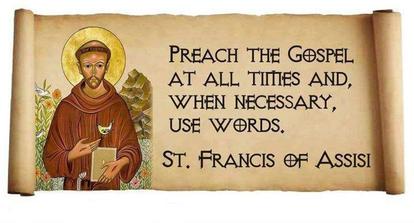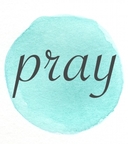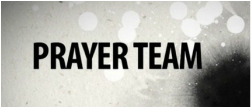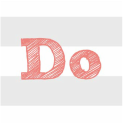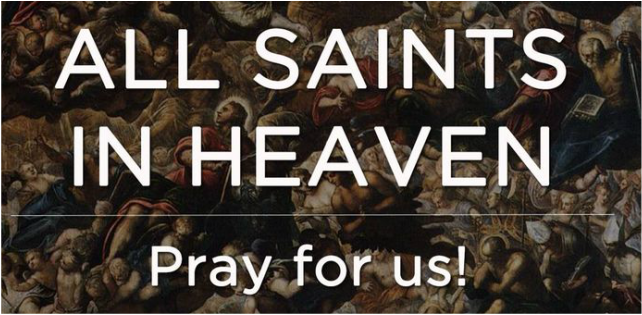Family with Teen(s)
The month of October has a lot of great Saint's feast days leading up to All Saint's Day on November 1st. This page is put together to highlight a few Saints celebrated in October and challenge you to consider picking your own patron Saint. We will also be looking at how to pray with these Saints in mind, but first we need to learn a little bit about them.
St. Thérèse of Lisieux - Oct. 1st
St. Therese of Lisieux, also know as the "little flower" or "of the child Jesus" is a fascinating Saint for young women. Her autobiography "Story of a Soul" is a recommended read for people of all ages and faith walks. If you have time this month check it out! You can read it for free online here: http://www.storyofasoul.com/
One thing that really sticks out about her is her teaching on the "little way".
One thing that really sticks out about her is her teaching on the "little way".
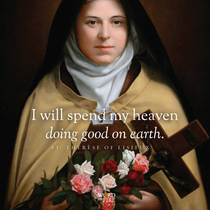
What is meant by her "little way"?
Therese saw herself as a child of God. She liked to keep things simple and focused as a child does. Trust, especially trust in God, is a childlike virtue. Some spiritualities have stressed complicated practices and extraordinary journeys of the soul as it responds to God's grace and love. Therese's spirituality is simple and she calls it her "little way." She believed and taught us that life presents enough challenges and opportunities for grace. She teaches us that God is everywhere - in every situation and person - and in the ordinary, simple details of life.
"Everything is grace" is probably the theme song of her spirituality. Her "little way" teaches us to do the ordinary things of life with extraordinary love. A smile, a note of encouragement, a phone call, suffering in silence, always having a positive word, a simple unnoticed task to brighten the life of another, and so many other simple deeds, done with love - these are the examples of her spirituality. The smallest action, done with love, is more important than great deeds done for personal glory, gratification or simply out of obedience. Therese teaches us that Jesus is everywhere and is the power for love and goodness operating within us. Such is the power and presence of grace. Therese's life was hidden. To many even in the convent, she seemed like such an average, ordinary person. Her greatness showed in the constancy of her love for others in the most simple ways.
Even in prayer, Therese teaches simplicity - talking to God and Jesus in direct, personal and heartfelt ways. She did not like long prayers. She fell asleep during community prayer. She disliked the rosary. She prayed from her heart as a child speaks honestly and trustingly to a parent they love. God calls us to respond to Divine Love in a childlike relationship of love, trust and bold confidence to "Abba" (which literally means 'Dad'), and by doing the simple things for others, well and with love.
Therese was faithful to the Gospel of Jesus and the core of his message. She invites us to join in her "spiritual childhood" or "little way." The power, appeal and simplicity of her message is why our Church declared her a Doctor of the Church in 1997.
Therese saw herself as a child of God. She liked to keep things simple and focused as a child does. Trust, especially trust in God, is a childlike virtue. Some spiritualities have stressed complicated practices and extraordinary journeys of the soul as it responds to God's grace and love. Therese's spirituality is simple and she calls it her "little way." She believed and taught us that life presents enough challenges and opportunities for grace. She teaches us that God is everywhere - in every situation and person - and in the ordinary, simple details of life.
"Everything is grace" is probably the theme song of her spirituality. Her "little way" teaches us to do the ordinary things of life with extraordinary love. A smile, a note of encouragement, a phone call, suffering in silence, always having a positive word, a simple unnoticed task to brighten the life of another, and so many other simple deeds, done with love - these are the examples of her spirituality. The smallest action, done with love, is more important than great deeds done for personal glory, gratification or simply out of obedience. Therese teaches us that Jesus is everywhere and is the power for love and goodness operating within us. Such is the power and presence of grace. Therese's life was hidden. To many even in the convent, she seemed like such an average, ordinary person. Her greatness showed in the constancy of her love for others in the most simple ways.
Even in prayer, Therese teaches simplicity - talking to God and Jesus in direct, personal and heartfelt ways. She did not like long prayers. She fell asleep during community prayer. She disliked the rosary. She prayed from her heart as a child speaks honestly and trustingly to a parent they love. God calls us to respond to Divine Love in a childlike relationship of love, trust and bold confidence to "Abba" (which literally means 'Dad'), and by doing the simple things for others, well and with love.
Therese was faithful to the Gospel of Jesus and the core of his message. She invites us to join in her "spiritual childhood" or "little way." The power, appeal and simplicity of her message is why our Church declared her a Doctor of the Church in 1997.
Explore this website to find out more about her life, her writings, and why she is a Doctor of the Church today!
St. Francis of Assisi - Oct. 4th
Check out these two blogs about some of the truths about our faith that we can learn from Saint Francis, one of the most popular Saints in our Church!
What we can learn from St. Francis of Assisi's 'swag'
I Walk with St. Francis of Assisi
What we can learn from St. Francis of Assisi's 'swag'
I Walk with St. Francis of Assisi
St. John Paul II - Oct. 22rd
Why is St. John Paul II such an amazing Saint? Check out this video:
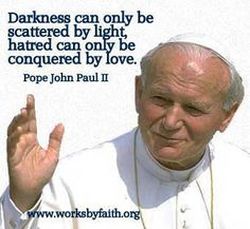
This video has so many great points about what an outstanding person John Paul II.
The greatest thing about having modern Saints is that you know people who met him! You know people who are of the JPII generation that followed his life while he was still living it! Talk to parents, uncles, and grandparents who can tell you the stories of what it was like when they first heard about him, when they read his teachings, when he was shot, or when he was dying.
He was a person of relationships and would love to see these conversations happen and faith filled relationships grow!
The greatest thing about having modern Saints is that you know people who met him! You know people who are of the JPII generation that followed his life while he was still living it! Talk to parents, uncles, and grandparents who can tell you the stories of what it was like when they first heard about him, when they read his teachings, when he was shot, or when he was dying.
He was a person of relationships and would love to see these conversations happen and faith filled relationships grow!
St. Thérèse of Lisieux - Oct. 1stFeast Day Novena Prayer
St. Therese, Flower of fervor and love, please intercede for us. Fill our hearts with your pure love of God. As we approach and celebrate your feast day, make us more aware of the goodness of God and how well He tends His garden. Instill in us your little way of doing ordinary things with extra-ordinary love. Give us the heart of a child who wonders at life and embraces everything with loving enthusiasm. Teach us your delight in God's ways so that divine charity may blossom in our hearts. Little Flower of Jesus, bring our petitions (mention in silence here) before God, our Father. With your confidence, we come before Jesus as God's children, because you are our heavenly friend. As we celebrate the Feast Day of your homecoming in heaven,continue to shower roses and grace upon us. Amen LET THE SAINTS BE YOUR |
St. Francis of Assisi - Oct. 4thBlessing written by Francis
May the Lord bless you and keep you; may the Lord show his face to you and have compassion on you! May he turn his face to you and give you peace! Amen. St. John Paul II - Oct. 22rdPrayer For Peace written by John Paul II
Lord Jesus Christ, who are called the Prince of Peace, who are yourself our peace and reconciliation, who so often said, "Peace to you," grant us peace. Make all men and women witnesses of truth, justice, and brotherly love. Banish from their hearts whatever might endanger peace. Enlighten our rulers that they may guarantee and defend the great gift of peace. May all peoples on the earth become as brothers and sisters. May longed-for peace blossom forth and reign always over us all. Amen |
Pick a Patron Saint for your life, current situation, or just this school year! The first article gives some practical tips on how to do this. Many parishes have the young people who are in Confirmation preparation choose a Saint at that time, but really you can do this at any time. Your patron can also change several times during your life as you take on new jobs, become a parent, or have any other big events.
How to "Choose" a Patron Saint
If you like quizzes, this one is for you! See what some of the characteristics are that it looks at, even if you do not totally agree with the Saint you are given, so that you can make a strong choice in the end.
Quiz: Which Saint are You Like?
Another way to look at it is to pick a Saint based on a day that is important to you like your birthday! It could also be a Baptism day, adoption day, anniversary, or whatever you would like. Here is a calendar where you can find the Saint that connects to your special day.
Saint by the Day
Not satisfied with anything you have found so far? Go browsing and see if any Saint pops out as the Saint for you!

